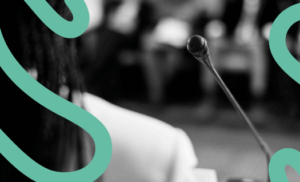It seems no coincidence that the arrival of Donald Trump as President of the United States will bring about significant changes in the management of social networks. One of the most significant is the decided shift towards user self-management in the control and regulation of published content. Taking as a reference the “community notes” of Elon Musk’s X, the US president’s chief advisor, Meta has already announced that it will follow the same model for content control. The justification is freedom of expression. The reality is that this will open the way for the the social media with hate and false content..
Musk put forward the current model of content control and penalization some time ago. Basically, the user of what was once Twitter, if he applies for it, can rate other people’s posts and qualify what they say. He can consider whether a text is true or not, contextualize it by providing links to sites that support his opinion and even rate the usefulness of the publication. That reliance on self-management, however, had one source: the elimination of much of the global workforce, including content moderators and monitoring of terms of service.
With Trump in the White House, Jeff Bezos and Mark Zuckerberg have just had enough time to get Amazon and Meta, respectively, to align themselves with Musk by announcing a relaxation of surveillance. Endorsing Trump’s criticism of the impact on freedom of expression of content quality control measures, they are beginning to bet on a scenario in which platforms disengage from the activity of their users. Publish what you want and let others be the judge of you.
Why will all this be, in the medium and long term, a very bad idea? Here are three reasons, although there could be more.
1. Content monitoring is an obligation of the media.
At least in Spain, a media outlet has the obligation to supervise and control the contents it publishes or broadcasts, especially those generated by its professionals or collaborators. If such content affects fundamental rights, it must be held jointly and severally liable and face sanctions. The Penal Code also provides for sanctions against media that publish content constituting libel, slander or incitement to hatred, violence and discrimination.
“But social networks are not media”, you will say. More or less, that’s right. We can discuss it if we take into account that Meta’s terms of service consider valid, for example, now state that homosexuality is a disease, something that is punishable by law in Spain. Also, the Information Society Services Law (LSSI) already said that, if the content is generated by third parties, there is no liability if the platform is effectively unaware that it is unlawful, but if it is notified of its existence, it has to act diligently and remove or block the content. If you remove the team in charge of those things, it doesn’t seem possible to act that way, does it?
2. The criterion for evaluating content requires specialists and not opinionated people.
We can all have an opinion on almost everything, and we can all demand to be able to express it, for example through comments on the Internet. But the vast majority of us lack the criteria (that mix of knowledge and the opportunity to express it) to add value to our opinions. Nadal may be one of the best sportsmen in history, but that does not make his opinions on tax management any better founded. Nor do mine.
The ideal is to leave space to the experts, to those who know the background, the facts and the regulations. Those who can help us better understand what is going on and what things mean. However, opening the door to parachutists who launch themselves into sterile debates in networks, often providing irrelevant and even false information to defend some positions or others, only serves to bring noise. To X, of course, this mechanism is leading him to generate a parallel reality in which lies are a valid interpretation of reality.
3. Lying and harassment impede freedom of expression.
No, friends. Being able to say whatever you want is not free speech. If your hate is communicated and spread, and it makes others feel free from any punishment to do the same, maybe other people don’t feel safe to express themselves. We have given ourselves rules of coexistence in society ratified by laws. Those, and the common sense linked to them, should be the rules of the game. But to consider that the revisionist can be put on the same level as the historian, the conspiracist as the scientist or the neo-Nazi as the human rights activist usually leads to the harassment of the former by the latter.
Freedom of expression must be exercised in a context of security and normative respect. The opposite will be the death of the ability to express ourselves, self-censorship and silence on the part of those who fear to give their opinion as opposed to those who prefer to shout it out.










